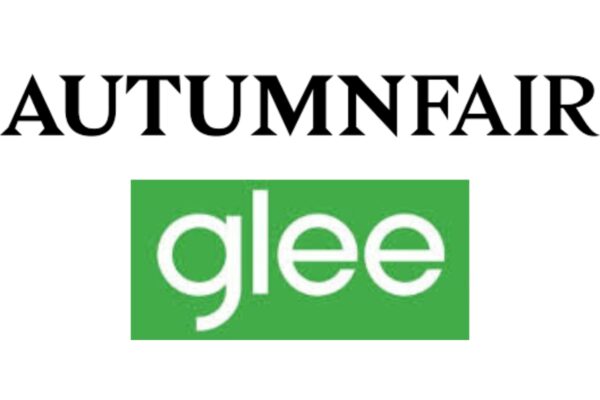 Alan Monahan writes: I popped into my local coffee shop the other day to be greeted by a hand-written sign on the counter: ‘Sorry, we can only accept cash payments.’
Alan Monahan writes: I popped into my local coffee shop the other day to be greeted by a hand-written sign on the counter: ‘Sorry, we can only accept cash payments.’
Oh dear, their computer had crashed and the barista was painstakingly noting all transactions on a piece of paper.
Never mind. I always carry cash. I fumbled for my £2 coin, paid up and made my way to a nearby table with a black Americano, cursing the design of the saucer into which most of my coffee had spilled.
But this set me wondering. How many small retailers have a backup plan when they can’t put orders through a POS system? How much business is lost when they are unable to swipe credit cards or take payment by other electronic means? And how much goodwill disappears when a customer walks away without being served, unable to buy the product they had set their heart on because they don’t have the spondulix?
In our headlong rush toward a cashless society I was reminded of something that former 10 Downing Street adviser Daniel Korski wrote last summer about proposals developed by him and his team to force the pace of the transition away from cash. They almost made PM David Cameron’s 2015 Tory conference speech, ‘only to be dropped at the last minute’ because then Chancellor George Osborne was concerned that the public wouldn’t be ready for such a massive change.
Good judgment, George. But are consumers ready now? I’m not! Of course I use plastic – a lot. But all cashless transactions are totally dependent on computers and, as we all know, they can become infected by viruses. And they do crash.
 What also concerns me is that we would be sitting ducks for cyber terrorists: the consequences could be devastating. And credit card fraud would be bound to soar – as it has over the past decade in Sweden, which claims to be the most cash-free society on the planet.
What also concerns me is that we would be sitting ducks for cyber terrorists: the consequences could be devastating. And credit card fraud would be bound to soar – as it has over the past decade in Sweden, which claims to be the most cash-free society on the planet.
Meanwhile, in the name of progress, banks are closing and small retailers are travelling miles to pay in their cash takings at a branch that has managed to escape the cuts. Fewer ATMs will also hasten the demise of the pound in our pocket.
I’m firmly on the side of Ross Clark, who argues in his book, The War Against Cash, that commercial interests want us to pay electronically in order to collect valuable data on our spending habits, while governments would love us to move to cashless payments in order to control the economy in ways which suit them, not us. If we choose to pay electronically, that is one thing, but we will regret it if we do not defend the right to pay with cash.
And writing for the Daily Mail, Clark says that some shops, such as healthy eating chain Tossed, have started to refuse cash and are only interested in customers who pay by card, while Waitrose is also piloting cashless payments.
 ‘The cashless economy is being forced on us by stealth as electronic payment increasingly becomes the only option. The argument in its favour is convenience, but the truth is that it’s all about greed.’
‘The cashless economy is being forced on us by stealth as electronic payment increasingly becomes the only option. The argument in its favour is convenience, but the truth is that it’s all about greed.’
Clark points out that The Boston Consulting Group estimates that banks and payment companies such as Visa and MasterCard currently make $1 trillion annually worldwide in fees – typically paid by the retailer – for processing electronic payments.
This is predicted to double by 2023 as consumers, either through choice or coercion, switch to electronic methods of payment.
Clark believes that ‘it won’t be just the retailers who are being fleeced’, adding: ‘Currently, consumers are rarely charged fees to use credit cards and debit cards, but you can bet that would change if there was no option to pay in cash.’
And he cautions that ‘an even bigger prize’ is the opportunity that cashless payments offer to large corporations to collect vast amounts of personal information about individuals.
‘Few of us are aware that we are also feeding a vast data machine whenever we use our credit and debit cards. This data – where, when and what we buy – can be sold on so other retailers can target us with advertising for similar products.
‘What we pay for in cash leaves no electronic trace and is a missed opportunity as far as the marketing industry is concerned. They want to be able to track every detail of our financial lives.’
As for the Cameron government’s belief that going cashless would cut crime because electronic payments are theoretically traceable, he says: ‘That would be a more valid argument were it not for the explosion in online fraud which resulted in Britons losing a total of £755 million in 2015, much of it quickly siphoned abroad.’
Clark adds that doesn’t mean that the police or anyone else is actually bothering to do the tracing.
He is right to be sceptical. And on the back of news that most police forces will not now pursue criminals who steal goods from shops worth less than £200, his fears may be shared by many of you.
We will go cashless at our peril.














